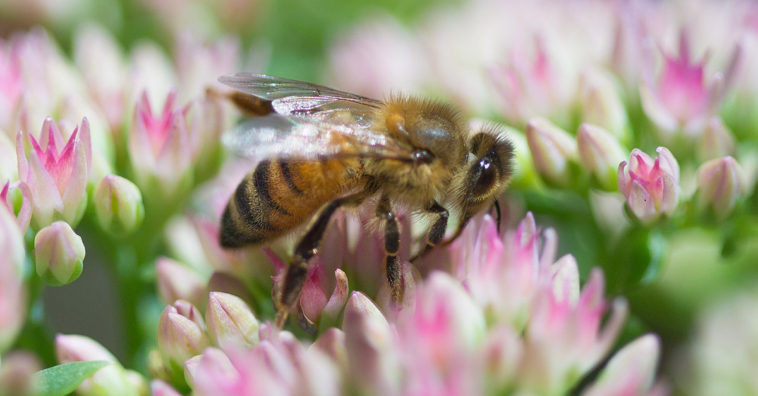On a recent debate of the Royal Geographical Society of London, the Earthwatch Institute concluded that the bees are the most important living creatures in the whole world.
The audience has heard five scientists who battled it out for primates, plankton, bats, fungi and bees.
All of the species are invaluable for our planet’s ecosystem, but the debate’s goal was to raise awareness about conservation by asking the audience to vote for one of the species to get a fictitious cheque for 1 trillion pounds to be spent on their conservation.
The audience voted to save the bees!
An underlying vote put Professor David Thomas ahead of the pack with tiny fish, trailed by Dr. George McGavin speaking to honey bees. At that point, both were each allowed an additional five minutes to prevail upon help for their species – and everything changed.
Professor Thomas exhibited a great summarizing, yet the victor, Dr. McGavin, won the day with his influential contention, clarifying how one fourth of a million types of flower plants rely upon honey bees, numerous species are vital to world farming, and without them, we would lose blossoming plants, just as various products of the soil.
Among the significant reasons for honey bee decays are natural surroundings misfortune and fracture, expanding the utilization of bug sprays, and illnesses.
To be specific, 70% of our nourishment supply depends on honey bees, and the fertilization they make permits the proliferation of plants, which are thus, nourishment for many creatures.
Around 250,000 types of flower plants rely upon honey bees for fertilization, any of which are crucial for world horticulture.
Honey bees increment the yields of around 90 crops, including apples, blueberries, and cucumbers by up to 30%, so in a world without honey bees, numerous leafy foods would turn out to be rare and restrictively costly.
Besides, various medications, both ordinary and elective cures, originate from flower plants.
Cotton is another fundamental item pollinated by the honey bee.
Then again, a ton of winged animals and little warm blooded animals feed off the berries and seeds that depend on honey bee fertilization, so on the off chance that they kick the bucket of craving, their predators – the omnivores or carnivores that proceed with the natural pecking order, would starve too.
As said by Dr. George McGavin:
The bee populations are in a free fall. Our world without bees would be completely catastrophic.
Accordingly, the Earthwatch group of spectators ought to be extolled for heading his call and casting a ballot to spare them, and the whole planet with it.
A study directed by the Apiculture Entrepreneurship Center of the Universidad Mayor (CeapiMayor) and the Apiculture Corporation of Chile (Cach) with the help of the Foundation for Agrarian Innovation (FIA) found that the honey bee is the main living being that it’s anything but a transporter of a pathogen, paying little respect to whether it is a growth, an infection or a bacterium.
Also, the nectar they produce is an important common item that offers endless medical advantages. The nectar created by honey bees, fills in as nourishment, yet in addition give numerous advantages to our wellbeing and our skin.
Albert Einstein once said that if the bees disappear, we humans would have only 4 years left to live.
Tragically, ongoing examinations show a sensational decay of the honey bees’ number as right around 90 percent of the honey bee populace has vanished over the most recent couple of years.
The primary driver incorporate huge deforestation, absence of safe spots for homes, absence of flowers, the uncontrolled utilization of herbicides and pesticides, and changes in the dirt.
Lately, people started to understand the importance of the bees in our ecosystem, and many animal-rights groups have been trying for the conservation of the species, and many celebrities also joined the cause.
Even though these harmful practices are entrenched in agriculture and production, there are different ways in which we can save the bees, and these are the few main guidelines:
- Promote all-natural agricultural alternatives.
- Don’t reduce, prohibit, the use of toxic pesticides.
- Constantly research and monitor the welfare, health and conservation of the bees.
Sources:science-andinfo.blogspot.comtheguardian.comsciencetimes.cominnovations-report.com
This article was originally posted on freeworldfacts.com




